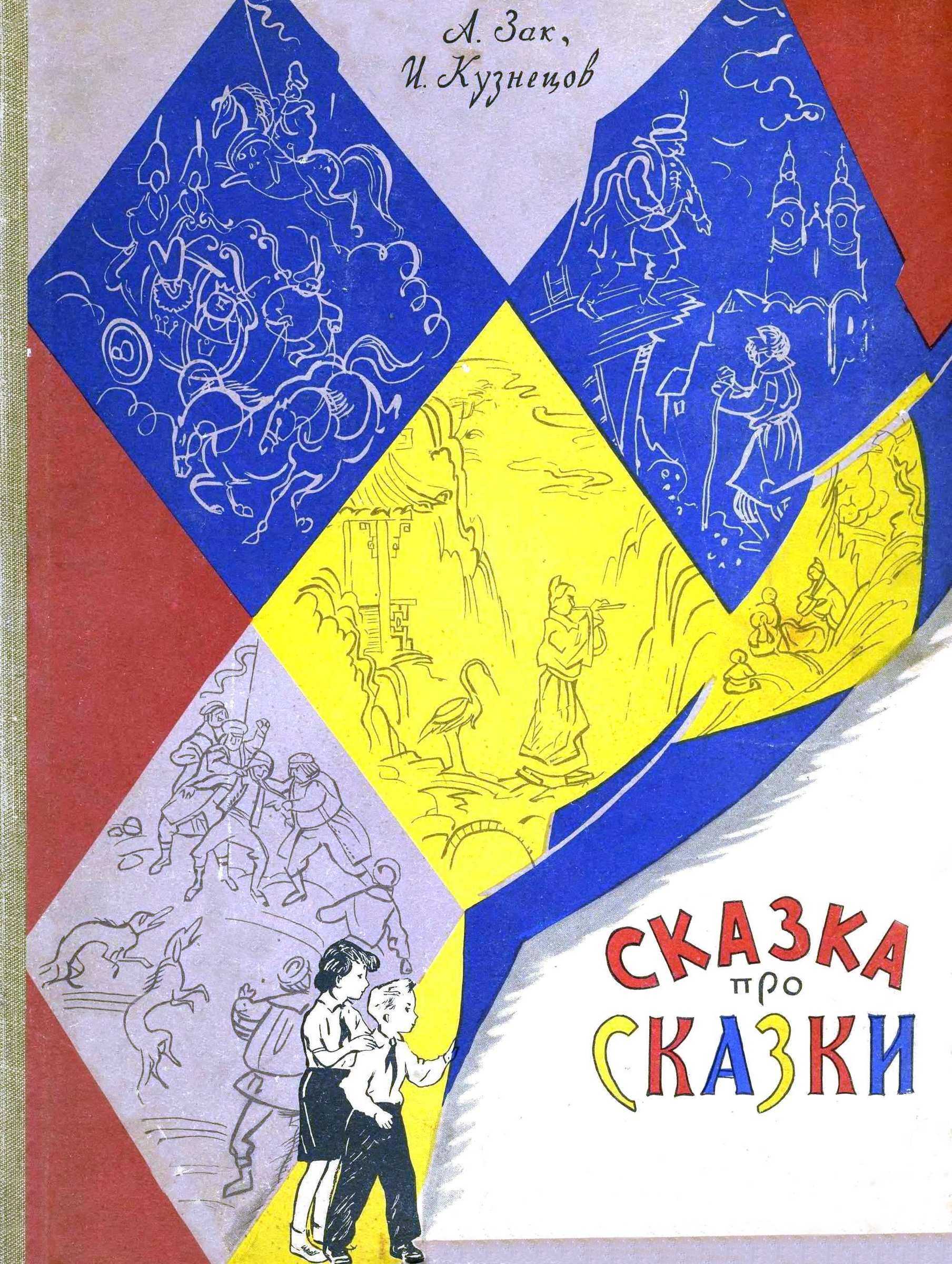(НЕ)страшная математика: как ее понять и прокачать свой мозг - Джо Боулер
Книгу (НЕ)страшная математика: как ее понять и прокачать свой мозг - Джо Боулер читаем онлайн бесплатно полную версию! Чтобы начать читать не надо регистрации. Напомним, что читать онлайн вы можете не только на компьютере, но и на андроид (Android), iPhone и iPad. Приятного чтения!
Шрифт:
Интервал:
Закладка:
247. Pesek and Kirshner, “Interference of Instrumental Instruction,” 526.
248. Pesek and Kirshner, “Interference of Instrumental Instruction.”
249. M. Cordero, M. Leshin, M. Selbach-Allen, and T. LaMar, “Exploring Calculus,” youcubed.org, n.d., https://www.youcubed. org/exploring-calculus/.
250. “What Can Math Reveal About Our World and Ourselves?” Steven Strogatz, n.d., https://www.stevenstrogatz.com/.
251. Strogatz, Infinite Powers.
252. Strogatz, Infinite Powers, xv.
253. Strogatz, Infinite Powers.
254. “The Volume of a Lemon,” youcubed.org, n.d., https://www. youcubed.org/resources/the-volume-of-a-lemon/.
255. J. Boaler, K. Brown, T. LaMar, M. Leshin, and M. Selbach-Allen, “Infusing Mindset Through Mathematical Problem Solving and Collaboration: Studying the Impact of a Short College Intervention,” Education Sciences 12 (2022): 694, https://doi. org/10.3390/educsci12100694.
256. Cordero et al., “Exploring Calculus.”
257. Boaler et al., “Infusing Mindset,” 694.
258. “Our People,” Nk’mip Desert Cultural Centre, n.d., https://nkmi-pdesert.com/our-people/.
259. Clack, “Distinguishing Between ‘Macro’ and ‘Micro’ Possibility Thinking.”
260. Z. Hammond, Culturally Responsive Teaching and the Brain: Promoting Authentic Engagement and Rigor Among Culturally and Linguistically Diverse Students (Thousand Oaks, CA: Corwin Press, 2014).
261. “Indigenous Mathematical Art,” youcubed.org., n.d., https:// www.youcubed.org/resource/indigenous-maths-art/.
262. Примеры заданий смотрите в наших книгах для программы K–8, которые излагают масштабные идеи для каждого класса; многие педагоги-математики делятся там красивыми концептуальными задачами: “K–8 Curriculum,” youcubed.org.
Глава 7. Разнообразие практики и обратная связь
263. “K. Anders Ericsson,” Wikipedia, проверено 16 декабря 2022 года, https://en.wikipedia.org/wiki/K._Anders_Ericsson.
264. Ericsson and Pool, Peak.
265. Ericsson and Pool, Peak.
266. Hecht et al., “ShiЇing the Mindset Culture.”.
267. J. Boaler, “Open and Closed Mathematics Approaches: Student Experiences and Understandings,” Journal for Research in Mathematics Education 29, no. 1 (1998): 41–62; J. Boaler, Experiencing School Mathematics: Traditional and Reform Approaches to Teaching and Their Impact on Student Learning (Mahwah, NJ: Lawrence Erlbaum Associates, 2002).
268. Boaler, Experiencing School Mathematics.
269. Macrine and Fugate, eds., Movement Matters; L. Shapiro and S. A. Stolz, “Embodied Cognition and Its Significance for Education,” Theory and Research in Education 17, no. 1 (2019): 19–39; D. Abrahamson and A. Bakker, “Making Sense of Movement in Embodied Design for Mathematics Learning,” Cognitive Research: Principles and Implications 1, no. 1 (2016): 1–13; D. Abrahamson, “Embodied Design: Constructing Means for Constructing Meaning,” Educational Studies in Mathematics 70 (2009): 27–47.
270. K. P. Blair, M. Rosenberg-Lee, J. M. Tsang, D. L. Schwartz, and V. Menon, “Beyond Natural Numbers: Negative Number Representation in Parietal Cortex,” Frontiers in Human Neuroscience 6 (2012): 7.
271. D. L. Schwartz, J. M. Tsang, and K. P. Blair, The ABCs of How We Learn: 26 Scientifically Proven Approaches, How They Work, and When to Use Them (New York: W. W. Norton, 2016); Schwartz and Bransford, “Time for Telling”; S. Levine, “Contrasting Cases: A Simple Strategy for Deep Understanding,” Cult of Pedagogy, March 20, 2022, https://www.cultofpedagogy.com/contrast-ing-cases/.
272. Schwartz et al., ABCs of How We Learn; Schwartz and Bransford, “Time for Telling”; Levine, “Contrasting Cases.”
273. Schwartz et al., ABCs of How We Learn; Schwartz and Bransford, “Time for Telling”; Levine, “Contrasting Cases.”
274. Schwartz et al., ABCs of How We Learn; Schwartz and Bransford, “Time for Telling”; Levine, “Contrasting Cases.”
275. H. Luo, T. Yang, J. Xue, and M. Zuo, “Impact of Student Agency on Learning Performance and Learning Experience in a Flipped Classroom,” British Journal of Educational Technology 50, no. 2 (2019): 819–31; P. Wiliams, “Student Agency for Powerful Learning,” Knowledge Quest 45, no. 4 (2017): 8–15; J. Boaler and T. Sengupta-Irving, “The Many Colors of Algebra: The Impact of Equity Focused Teaching upon Student Learning and Engagement,” Journal of Mathematical Behavior 41 (2016): 179–90; J. Arnold and D. J. Clarke, “What Is ‘Agency’? Perspectives in Science Education Research,” International Journal of Science Education 36, no. 5 (2014): 735–54; J. Boaler and J. G. Greeno, “Identity, Agency, and Knowing,” Multiple Perspectives on Mathematics Teaching and Learning 1 (2000): 171.
276. J. Boaler and S. K. Selling, “Psychological Imprisonment or Intellectual Freedom?: A Longitudinal Study of Contrasting School Mathematics Approaches and Their Impact on Adults’ Lives,” Journal for Research in Mathematics Education 48, no. 1 (2017): 78–105.
277. Boaler, Experiencing School Mathematics; Boaler, “Open and Closed Mathematics.”
278. Boaler, Experiencing School Mathematics.
279. Boaler and Selling, “Psychological Imprisonment or Intellectual Freedom?”
280. G. Hatano and Y. Oura, “Commentary: Reconceptualizing School Learning Using Insight from Expertise Research,” Educational Researcher 32, no. 8 (2003): 26–29.
281. Boaler and Selling, “Psychological Imprisonment or Intellectual Freedom?”
282. M. Suri, “Declines in Math Readiness Underscore the Urgency of Math Awareness,” The 74, April 5, 2023, https://www.the-74million.org/article/declines-in-math-readiness-underscore-the-urgency-of-math-awareness/.
283. M. D. Felton, C. O. Anhalt, and R. Cortez, “Going with the Flow: Challenging Students to Make Assumptions,” Mathematics Teaching in the Middle School 20, no. 6 (2015): 342–49.
284. Выдержка из Джо “Важности борьбы” на сайте youcubed. org; “The Importance of Struggle,” youcubed.org.
285. Boaler, Mathematical Mindsets; Hecht et al., “ShiЇing the Mindset Culture.”
286. “Wolfram Mathematica,” Wolfram, n.d., https://www.wolfram.com/mathematica/.
287. “WolframAlpha,” Wolfram, n.d., https://www.wolframalpha.com/.
288. C. Wolfram, “Teaching Kids Real Math with Computers,” TED, July 2010, www.ted.com/talks/conrad_wolfram_teaching_kids_ real_math_with_com puters?language=en.
289. “Let’s Fix Maths Education,” computerbasedmath.org, n.d., https://www.computerbasedmath.org/.
290. E. L. Bjork and R. A. Bjork, “Making Things Hard on Yourself, But in a Good Way: Creating Desirable Difficulties to Enhance Learning,” Psychology and the Real World: Essays Illustrating Fundamental Contributions to Society 2 (2011): 59–68.
291. “Carl Wieman,” Wikipedia, проверено 18 октября 2023 года, https://en.wikipedia.org/wiki/Carl_Wieman.
292. C. Wieman, “Why Not Try a Scientific Approach to Science Education?” Change: The Magazine of Higher Learning 39, no. 5 (2007): 9–15.
293. “Carl Wieman,” Stanford Profiles, n.d., https://profiles.stanford. edu/carl-wieman.
294. L. Deslauriers, E. Schelew, and C. Wieman, “Improved Learning in a Large-Enrollment Physics Class,” Science 332, no. 6031 (2011): 862–64.
Глава 8. Новое математическое будущее
295. Bryan et al., “ShiЇing the Mindset Culture.”
296. Lawyers’ Committee for Civil Rights of the San Francisco Bay Area, Held Back: Addressing Misplacement of 9th Grade Students in Bay Area School Math Classes, January 2013, https://lccrsf.org/ wp-content/uploads/HELD-BACK-9th-Grade-Math-Misplace-ment.pdf.
297. Программа 2023 Mathematics Framework, California Department of Education.
298. Boaler and Staples, “Creating Mathematical Futures”; Boaler, “Open and Closed Mathematics.”
299. Drew, “Why Science Majors Change Their Minds.”
300. S. Clivaz and T. Miyakawa, “The Effects of Culture on Mathematics Lessons: An International Comparative Study of a Collaboratively Designed Lesson,” Educational Studies in Mathematics 105, no. 1 (2020): 53–70.
301. Deslauriers et al., “Measuring Actual Learning”; Kapur, “Productive Failure in Learning Math”; Schwartz et al., “Practicing Versus Inventing,” 759; Schwartz and Bransford, “Time for Telling.”
302. Deslauriers et al., “Improved Learning.”
303. Boaler et al., “Transformative Impact,” 512.
304. Алексей – senior lecturer в Эссекском университете; в США этой должности соответствует профессор. [Должность senior lecturer (буквально – «старший лектор») примерно соответствует нашему доценту. Аналог в североамериканской системе – ассоциированный профессор (нечто среднее между ассистент-профессором и полным профессором). – Прим. пер.].
305. I. Daly, J. Bourgaize, and A. Vernitski, “Mathematical Mindsets Increase Student Motivation: Evidence from the EEG,” Trends in Neuroscience and Education 15 (2019): 18–28.
306. Daly et al., “Mathematical Mindsets Increase Student Motivation.”
307. A. L. Campbell, M. Mokhithi, J. P. Shock, “Exploring Mathematical Mindset in Question Design: Boaler’s Taxonomy Applied to University Mathematics,” in REES AAEE 2021 Conference: Engineering Education Research Capability Development, 980–88 (Perth, WA: Engineers Australia, 2021).
308. “Sol Garfunkel,” Wikipedia, n.d., https://en.wikipedia.org/wiki/ Sol_Garfunkel.
309. Смотрите сайт организации Consortium for Mathematics and Its Applications, https://www.comap.com/.
310. Смотрите “The Mathematical Contest in Modeling (MCM) / The Interdisciplinary Contest in Modeling (ICM),” Consortium for Mathematics and Its Applications, https://www.comap.com/ contests/mcm-icm.
311. Смотрите сайт международных математических олимпиад https://www.imo-official.org/.
312. Boaler,
Прочитали книгу? Предлагаем вам поделится своим отзывом от прочитанного(прослушанного)! Ваш отзыв будет полезен читателям, которые еще только собираются познакомиться с произведением.
Уважаемые читатели, слушатели и просто посетители нашей библиотеки! Просим Вас придерживаться определенных правил при комментировании литературных произведений.
- 1. Просьба отказаться от дискриминационных высказываний. Мы защищаем право наших читателей свободно выражать свою точку зрения. Вместе с тем мы не терпим агрессии. На сайте запрещено оставлять комментарий, который содержит унизительные высказывания или призывы к насилию по отношению к отдельным лицам или группам людей на основании их расы, этнического происхождения, вероисповедания, недееспособности, пола, возраста, статуса ветерана, касты или сексуальной ориентации.
- 2. Просьба отказаться от оскорблений, угроз и запугиваний.
- 3. Просьба отказаться от нецензурной лексики.
- 4. Просьба вести себя максимально корректно как по отношению к авторам, так и по отношению к другим читателям и их комментариям.
Надеемся на Ваше понимание и благоразумие. С уважением, администратор knigkindom.ru.
Оставить комментарий
-
 Гость Татьяна01 март 19:12
Тупая безсмыслица. Осилила 10 страниц. Затем стало жалко себя и свой мозг ...
Мое искушение - Наталья Камаева
Гость Татьяна01 март 19:12
Тупая безсмыслица. Осилила 10 страниц. Затем стало жалко себя и свой мозг ...
Мое искушение - Наталья Камаева
-
 Гость Татьяна01 март 13:41
С удивлением узнала, что у этой писательницы день рождения такой же как и у меня.... в целом - да ети твою мать!!! Это это что же...
Право на Спящую Красавицу - Энн Райс
Гость Татьяна01 март 13:41
С удивлением узнала, что у этой писательницы день рождения такой же как и у меня.... в целом - да ети твою мать!!! Это это что же...
Право на Спящую Красавицу - Энн Райс
-
 Ма28 февраль 23:10
Роман очень интересный и очень тяжелый, автор вначале не зря предупреждает о грязи, коротая будет сопровождать нас- это не...
Ты принадлежишь мне - Ноэми Конте
Ма28 февраль 23:10
Роман очень интересный и очень тяжелый, автор вначале не зря предупреждает о грязи, коротая будет сопровождать нас- это не...
Ты принадлежишь мне - Ноэми Конте










